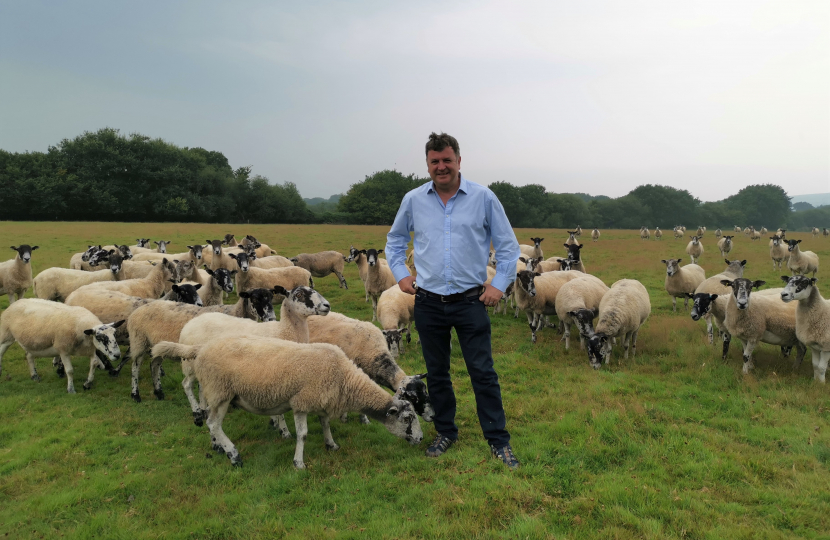
I recently attended COP26, which I covered in my local column a couple of weeks ago. It was an extraordinary event and culminated with a historic agreement which will do a lot to reduce global CO2 emissions. It was by no means perfect – the resistance to tackling climate change that exists in many countries is very difficult to break – but key commitments were made in several areas and I am optimistic that the conference will have a positive impact. My article can be found at www.melstridemp.com/cop26.
During the conference there seemed to be various myths circulating on social media that took aim at the farming industry, portraying it as the climate change enemy. My mailbag has included letters and emails repeating some of these claims and I thought I would use my column this week to challenge some of them.
One claim is agriculture is the biggest cause of Greenhouse Gas (GHG) emissions in the UK. Actually, it is actually the fifth biggest contributor (9%) after transport (27%), energy supply (21%), businesses (17%) and homes (15%). Another is that it takes tens of thousands of litres of water to produce 1kg of British beef or lamb and that this is comparable to three years of drinking water. This not a fair comparison because the water used to produce 1kg of beef or lamb is almost entirely rain water (so has no carbon footprint). The third myth is that the industry is resistant to change. This is not the case. I know from the many farms I have visited in Central Devon how deeply our farmers care for our environment and the industry is working to become carbon-neutral by 2040 (earlier than our economy as a whole).
Another issue is the anomaly of listing the biggest causes of GHG emissions without also listing any associated offsetting effects. Within our agriculture sector our farmers maintain many of our natural carbon sinks (such as soil, plants and forests) and around 40% of UK homes are supplied by renewable energy that is produced by our farmers. These positives must be taken into account.
To be clear – I am not denying that agriculture is a contributing factor to global warming. Many countries have livestock industries that are far less sustainable and efficient than ours and even we need to do more to be greener. In fact only last Tuesday the Government announced that farmers, foresters and growers could apply to a new £27 million pot for grants for new equipment and infrastructure to help to improve efficiency and reduce their carbon footprint.
Our farmers are actively working to be part of the solution to climate change and we in turn can do our bit to support them by buying and enjoying local produce that is world beating in quality.


